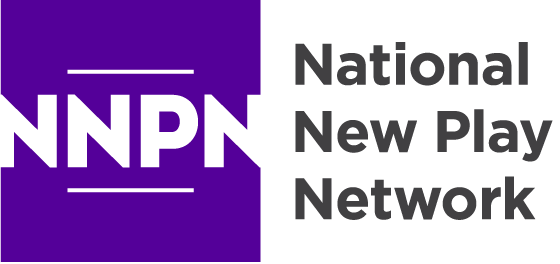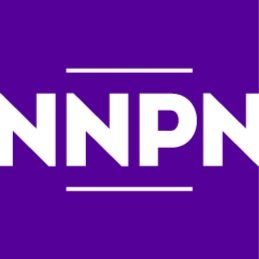Listening to LIGHT SWITCH
Teddy Lytle and Daniel Perkins in rehearsal for LIGHT SWITCH with Spectrum Ensemble Theatre
“Listen, dammit, listen!”
The above words are spoken by Henry Sullivan, the autistic protagonist of my play Light Switch. Henry is a gay autistic man who is hyper-fixated on 19th-century British literature. Like Henry, I was hyper-fixated on Victorian literature and read those books almost exclusively in my early teens. However, my primary fixation growing up was Broadway musicals. My entire life revolved around attending shows and listening to cast recordings to the extent that I rarely saw movies or listened to non-musical theatre music. I could talk about theatre at length to my peers, especially fellow theatre people. But when the conversation inevitably shifted to other topics I wasn’t as well-versed in, I shut down. Feelings of inadequacy and alienation and superfluidity would flood through me as others danced through conversations I didn’t know how to partake in. I had at least one college acquaintance criticize me for “not adding anything to the conversation.” Alternatively, I would inadvertently dominate the conversation with my interests after others were tired of hearing me talk about them. Once, I was telling an acquaintance something Broadway-related, and they interrupted me to say “If it’s Broadway-related, I don’t want to hear it.”
One commonly recognized trait of autistic people is that we can’t read social cues that others give off. These often have to be taught to us. Because of this conditioning, I feel a “click” when it’s time to turn the conversation to the other person, or when I find myself talking excessively about a special interest. A popular misconception of autistic people is that we don’t care to connect with others. Some of us don’t. But many of us do. And I wanted to, desperately. But the only way I knew how wasn’t sufficient. I would find myself in the same conversation patterns with people (a form of “scripting”) in order to get by. After we discussed all we could about my special interests, there was nothing else left. And whatever connection we had would dissipate.
Dave ready for the Great Work of seeing the Broadway revival of ANGELS IN AMERICAN to begin in 2018
I think, subconsciously, part of the reason I wrote Light Switch initially was to ask whether other people felt this way too. While rehearsing a workshop of the play for Spectrum Theatre Ensemble’s Neurodivergent New Play Festival, I think I got an answer.
Coming across Spectrum Theatre Ensemble was perhaps the happiest accident to happen in my artistic career. I was first introduced to the artistic director, Clay Martin, in January 2020. We met through a mutual friend whom I had worked with during the MFA Playwrights Workshop at the Kennedy Center (shoutout to Randall Rapstine!). I knew that there were theaters that centered disability, but none that centered neurodiversity specifically. At the time, they were looking for new plays about neurodiversity by neurodivergent writers for their Neurodiversity New Play Festival. I was very nervous to send them Light Switch. What if it offended other neurodivergent artists? What if it failed to ring true? Or what if it just wasn’t a strong play? Even if you are writing about your own experience as a marginalized person, there’s still the question of whether your story will resonate with other members of that group. While I never intended Light Switch to be the only autism narrative in the American theatre, I still wanted it to reflect autism as I experienced it: As complicated, complex, and human. Thankfully, the STE company’s response was overall positive, and Clay asked if we could do a virtual workshop of the play during the summer of 2020, which I gladly accepted. Fast-forward one year, and I found myself in Rhode Island preparing for an in- person workshop reading of Light Switch.
Daniel Perkins and Teddy Lytle in rehearsal
In both of STE’s workshops of Light Switch, Henry was played by Daniel Perkins. Dan brings a unique vulnerability to the role that is both endearing and charming, and you can’t help but root for him in any role he plays. Dan is also a fan of 19th century British literature and is an actor with autism, which was crucial to me in casting this role. When I asked Dan about what initially drew him to the script, and the differences between playing Henry in the online presentation of Light Switch and the live workshop, he had this to say:
“When I first read the script, I fell in love with the literary references (particularly Jane Austen) and Henry’s character arc. During the online festival, a big challenge for me was to convey Henry's arc on zoom without oversimplifying him into either a rude know-it-all or a naive person. The conversations that the cast and I had with you helped me to really flesh out his character. The [live] reading was something completely different because we had to do it in person while holding the scripts in our hand. That reading gave me a better sense of the character.”
In a monologue describing his autism to another character, Henry says that it feels like a “light switch.” His passion for 19th-century British literature is his only one, whereas other people have many “light switches” they can turn on and off again at will. While he wishes to have access to every light switch possible, he also deeply values his one and doesn’t want to compromise it. And he wants people to “listen, dammit, listen” to the stories and messages the literature he loves has to offer the world.
Daniel Perkins and Rae Mancini in rehearsal for LIGHT SWITCH 2021
As Dan delivered this monologue during one rehearsal, he spoke with such longing and passion and vulnerability that the room fell silent, rapt, attentive. Tuning into Dan’s words, which were really my words, I thought back to how I often felt inconsequential due to my lack of well-roundedness. I looked at my director, my stage manager, our festival manager, our intimacy choreographer, the other actors in the show, and I thought to myself, “This feeling, this specific feeling that I’ve lived with for so many years... I think I lived with it in order to bring this specific group of people into this one room to work on this play together. In this one moment, when we’re somehow miraculously able to rehearse in-person during a global pandemic that is far from over, when so much of how we live our lives have changed, this feeling from my past, a feeling that I haven’t felt in a long time, has brought together this specific group of people in this group of time.”
There was a cosmic sense of solidarity. A sense that we were all there to tell the same story about the specific feeling Henry expresses in the play. A sense that the feelings of social isolation and loneliness I experienced for a good part of my life were waiting for me to articulate them into theatrical language. Into words that actors would speak, and audiences would listen to.
In that moment, in that rehearsal space, everyone was listening.
And everyone was connected.
So... what’s next? Spectrum Theatre Ensemble plans to produce Light Switch in Spring 2022. I’m really glad that I’ve found a company that is dedicated to producing work by and about neurodivergent people. Too often, the stories of neurodivergent people have been told by neurotypical creators. Why is it important for neurodivergent artists to tell their own stories? Look out for that op-ed soon.
photos courtesy of Dave Osmundsen.





